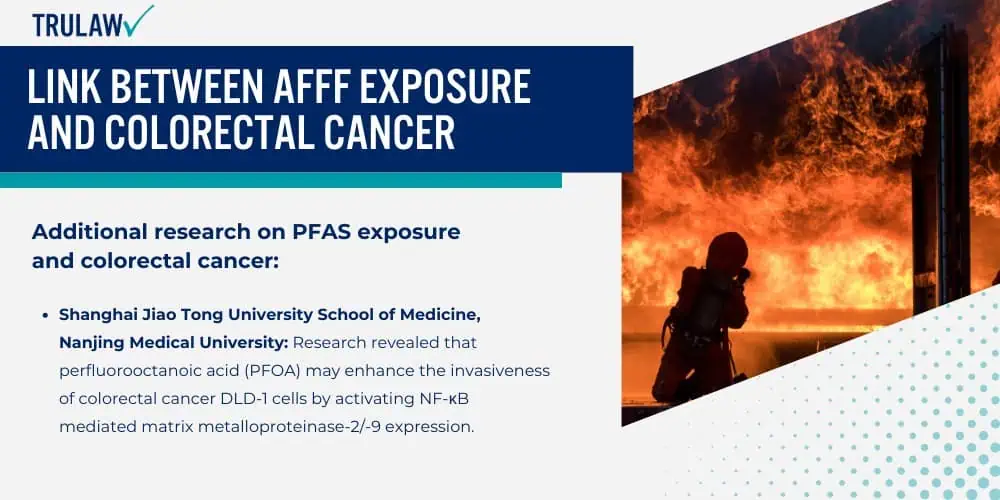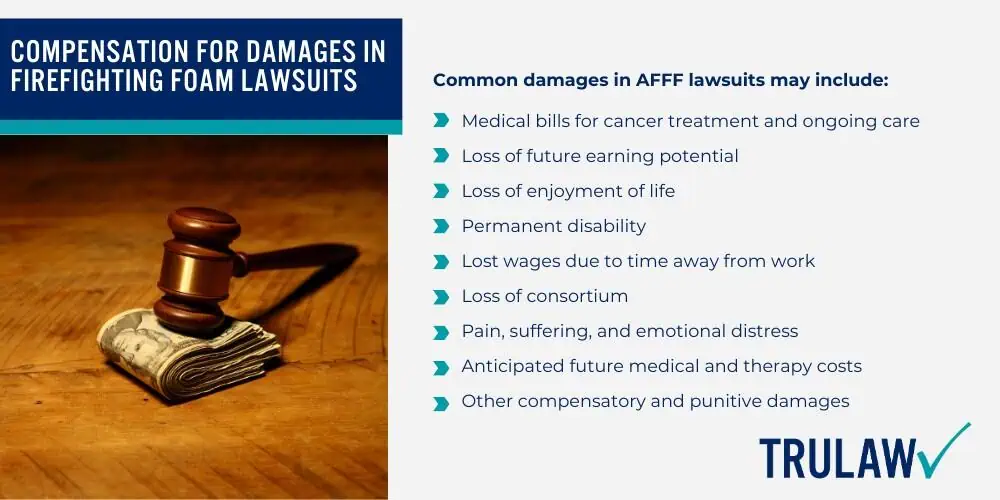Exposure to AFFF and PFAS chemicals has been associated with an increased risk of cancer, including colorectal cancer, along with other serious health concerns.

These connections have been documented in various studies by prominent organizations, such as the National Cancer Institute and the Environmental Protection Agency.
Specifically, PFAS chemicals like perfluorooctanoate (PFOA) and perfluorooctane sulfonate (PFOS) have been linked to a higher likelihood of developing colorectal cancer.
Research indicates that these substances may contribute to an elevated risk for this type of cancer.
A study conducted by researchers at West Virginia University examined colorectal cancer (CRC) rates in people from Appalachia who were exposed to PFAS.
The study identified:
“…a strong, inverse association between PFOS and the likelihood of CRC diagnosis, along with a more modest inverse association between PFOA and CRC.”
Additional research on PFAS exposure and colorectal cancer:
- Shanghai Jiao Tong University School of Medicine, Nanjing Medical University: Research revealed that perfluorooctanoic acid (PFOA) may enhance the invasiveness of colorectal cancer DLD-1 cells by activating NF-κB mediated matrix metalloproteinase-2/-9 expression.
- University of New Hampshire, Georgetown University: A study focused on cancer risk in communities exposed to PFAS found connections between PFAS exposure and various cancers, including colorectal cancer.
Ongoing Research on PFAS Chemicals and Their Cancer Risks
Further studies have shown a concerning association between certain PFAS chemicals, like PFOA and PFOS, and the risk of cancer:
- A separate study in the International Journal of Cancer found a positive correlation between PFOS exposure and an increased risk of breast cancer.
- The International Agency for Research on Cancer (IARC) has classified PFOA as carcinogenic to humans (Group 1) and classified PFOS as possibly carcinogenic to humans (Group 2B).
- The Journal of the American Medical Association published a study finding a statistically link between PFOA exposure and kidney cancer, testicular cancer, and ulcerative colitis.
- The U.S. Environmental Protection Agency (EPA) has issued a health advisory, warning that long-term exposure to PFOA and PFOS above certain levels could harm human health. As a result, in 2024, the EPA announced the National Primary Drinking Water Regulation (NPDWR) for six (6) PFAS chemicals — establishing legally enforceable Maximum Contaminant Levels (MCLs) that water systems must test and confirm are met before distributing drinking water to the public.
The growing body of evidence linking PFAS exposure to cancer is alarming, highlighting the need for continued research to fully understand the long-term health impacts of these chemicals.





